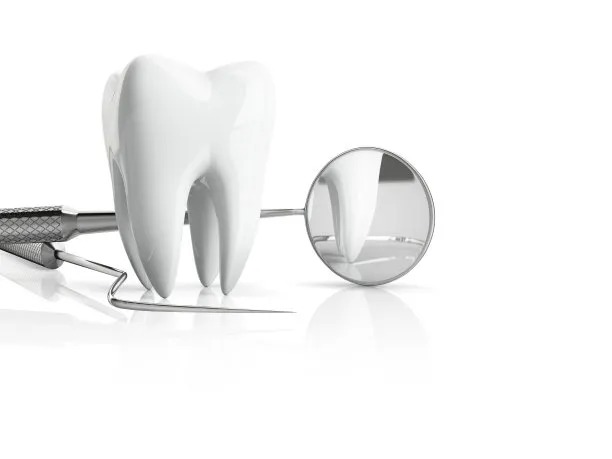Summary: Dental implants have transformed the field of dentistry, offering a permanent solution for missing teeth. This article explores the numerous benefits of dental implants, detailing the procedure involved, and discussing their long-lasting impacts on oral health. From enhanced aesthetics and improved function to both psychological and social benefits, dental implants can truly revolutionize smiles. Furthermore, the article emphasizes their durability and maintenance aspects, outlining why they are a preferred choice for many. By understanding the process and effects of dental implants, one can appreciate their significance in modern dental care.
1. The Transformative Benefits of Dental Implants

Dental implants provide several remarkable benefits, the first being their ability to significantly enhance a persons smile and appearance. When teeth are missing, it can drastically alter an individuals facial structure and aesthetics. Implants serve as a foundation for artificial teeth, restoring not only the smile but also boosting self-esteem and confidence.
Another key advantage is the functionality they offer. Unlike dentures, which can slip and cause discomfort while eating or speaking, dental implants function just like natural teeth. This stability allows individuals to enjoy a wider range of foods and improves their overall quality of life.
Additionally, dental implants promote better oral hygiene. With proper care, they can help prevent bone loss and maintain the integrity of surrounding teeth, making them a preventative measure against further dental issues that may arise from missing teeth.
2. Understanding the Dental Implant Procedure
The dental implant procedure is typically completed in several stages. Initially, a comprehensive examination and imaging tests will be conducted by a dental professional to assess the condition of the jawbone and determine the best treatment plan. This careful planning ensures the implants will be successfully seated.
Once the evaluation is complete, the actual implantation occurs. This involves surgically placing the titanium post into the jawbone, which acts as the root for the artificial tooth. The recovery period follows, allowing the bone to fuse with the implant, a process known as osseointegration that can take several months.
Finally, the final stage is the attachment of custom-made crowns to the implants. This step is crucial as it ensures that the new teeth not only match the patient’s natural teeth in color and shape but also provide the appropriate bite force. Regular follow-ups ensure that the implants integrate successfully and function properly.
3. Long-Lasting Effects on Oral Health
One of the most significant long-term effects of dental implants is their ability to preserve jawbone density. When a tooth is lost, the jawbone can begin to deteriorate over time due to lack of stimulation. Biological integration of implants helps maintain the structure of the jawbone, ultimately promoting healthier oral anatomy.
Dental implants also contribute to the preservation of adjacent teeth. By filling the gaps in the dental arch, implants prevent neighboring teeth from shifting, which can lead to misalignment and additional dental issues. This effect underscores the importance of restoring teeth not just for aesthetics, but also for functional and structural reasons.
Moreover, dental implants can also have positive psychological effects. Patients often report improvements in confidence and reduced social anxiety due to their restored smiles. This emotional well-being is a vital aspect of overall health that should not be overlooked.
4. Proper Care and Maintenance of Implants
To ensure the longevity of dental implants, proper oral hygiene practices are essential. Patients are advised to brush and floss as they would natural teeth, incorporating regular dental check-ups into their routine. Professional cleaning helps to prevent peri-implantitis, an infection that can occur around the implant.
In addition to routine oral care, patients should be mindful of lifestyle choices that impact dental health, such as quitting smoking and moderating alcohol intake. These adjustments can significantly enhance the success rates of dental implants and overall oral wellness.
Finally, a balanced diet rich in vitamins and minerals plays a crucial role in maintaining not just the health of the implants but also the overall health of the mouth. Adequate nutrition supports healing processes and sustains oral tissue health.
Summary: Dental implants revolutionize smiles and restore oral function while promoting better oral health. Understanding the benefits, procedure, and long-lasting impacts presents a compelling case for choosing implants as a solution for missing teeth. By prioritizing care and maintenance, individuals can enjoy their benefits for years to come.
This article is compiled by Vickong Dental and the content is for reference only.
Vickong Dental
Vickong Dental is a large medical group established in Hong Kong in 2008 by professors from well-known medical universities in Guangdong and Hong Kong, as well as medical doctors from key national '985' universities (including Master's supervisors and senior professors). The chain of branches brings together expert dentists with PhDs and Master's degrees from Hong Kong and Mainland China, committed to providing high-quality dental treatment.
"Vickong Dental Practices the University Motto of 'Healing and Serving Society,' with a Stable Operation for Sixteen Years. It Has Been honored with Hong Kong Enterprise Leaders's Choice,' and is a Global Trusted Implant Center for the Nobel Implant System. Recommended by Hong Kong Metro Broadcast and Guangdong Television, it Serves Customers from Over Thirty Countries and Regions, Gaining the Trust and Favor of Citizens from the Guangdong-Hong Kong-Macau Greater Bay Area and Surrounding Cities.

Thousands of customers' unanimous praise
The most recognized and highly recommended dental service by customers in the Guangdong-Hong Kong-Macau Greater Bay Area
We Ensure You Receive Detailed Care and Attention Here
Hong Kong standards, Shenzhen prices, Your Trusted English-speaking dentists

Vickong Dental Medical-Grade Instrument Disinfection Process
Vickong Dental Medical-Grade Instrument Disinfection Process

Vickong Dental Chain: A Warm and Comfortable Environment for Treatment






Appointment Hours

Q&A
Why choose Vickong Dental?
Vickong Dental practices the university motto 「Medicine to Benefit Society」, with each branch bringing together highly qualified dentists with doctoral and master’s degrees from Hong Kong and the Mainland, and has maintained seventeen years of steady operation。Recipient of 「2024 Hong Kong Enterprise Leaders Brand」, 「2025 Hong Kong Enterprise Leaders Brand」, a Nobel Biocare Global Trusted Implant Center, and a brand recommended by Metro Radio Hong Kong and Guangdong TV。
To date, we have served customers from more than thirty countries and regions,earning exceptionally high word-of-mouth recognition and trusted recommendations from residents across the Guangdong-Hong Kong-Macao Greater Bay Area and surrounding cities
We have eight major branches in Zhuhai、Shenzhen,and a consultation and service assurance center in Hong Kong,so you can book a free consultation at any time for any questions,which is very reassuring.
If I do not accept the quotation after the CT scan, will I be charged??
No! As long as the actual treatment has not started, you will not be charged any fees.
Will there be any additional charges during the treatment process?
No, there won’t be any additional charges. Before treatment begins, we will clearly explain the treatment plan and its corresponding fees. Only after the patient agrees and signs the consent form will we proceed with the dental service.
Can I pay in Hong Kong dollars?
Yes. Vickong Dental accepts payment in Hong Kong dollars. The amount will be converted based on the exchange rate of the day, and the applicable rate will be clearly communicated to you in advance.
Can I reschedule my appointment at any time?
Yes. Please contact us via **WeChat** or **WhatsApp** as early as possible, providing your original appointment time and details, along with your preferred new date and time slot for rescheduling.













